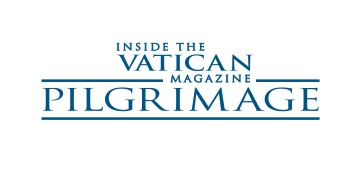Tuesday, April 29, 2019
The history of communist persecution of traditional Christians offers inspiration for those facing a “soft totalitarianism,” in terms of how faith endured under the “hard” form. The book Everyday Saints by the Russian Orthodox Metropolitan Tikhon (Shevnukov) describes how a Russian monastery fell into bad repute:
“It was said that its monks were all idlers and drunkards. During the Civil War [in Russia, c. 1920] the Bolsheviks arrived in the town that was closest to the monastery. They gathered together its inhabitants in the market square, and then they dragged the monastery’s monks out in a convoy.
“The commissar loudly yelled at the people as he pointed to those men in black: ‘Citizens! Townsfolk! You know these drunkards, gluttons, and idlers better than I do! Now their power has come to an end. But so that you will understand more fully how these vagabonds have fooled the workers and peasants for centuries, we will throw their cross and their Scriptures into the dust before them. Now, before your very eyes, you will see how each of them will stamp upon these tools of deceit and enslavement of the people! And then we will let them go, and let the four winds scatter them!’
“The crowd roared. And as the people cheered, up walked the monastery’s Abbot, a stout man with a meaty face and a nose all red from drinking. And he said as he turned to his fellow monks: ‘Well, my brothers, we have lived like pigs, but let us at least die like Christians!’
“And not a single one of those monks budged. That very day all their heads were chopped off by the sabers of the Bolsheviks.” —From a recent article in The American Conservative (TAC) by Prof. Alfred Kentigern Siewers, the William E. Simon Visiting Fellow in Religion and Public Life for the James Madison Program at Princeton University, and an Associate Professor of English and Affiliate Faculty Member in Environmental Studies at Bucknell University in Pennsylvania. The complete text of the article is below (link)
“In the classical revolutionary philosophy of Karl Marx and Friedrich Engels, religion is an ideology by which ‘the ruling class has sought to maintain and legitimate the status quo and so sought to keep other classes in subjection to itself.’” —Ibid.
==============
“Soft totalitarianism”
In the middle of April, on April 15, the Monday of Holy Week, the roof of Notre Dame of Paris — the central Christian religious structure of the city — burned. (Here is a link to my own comment on that fire, and the saving of the cathedral’s most precious relic, the Crown of Thorns, on Fox news on April 16; Fox news has its own link here, but there is a 30-second ad running in front of the video.)
Then, on Easter Sunday, April 21, hundreds of Christians were killed by terrorist bombings on Easter Sunday in churches in Sri Lanka.
Meanwhile, in a less dramatic and violent way, throughout the first months of the year, and continuing daily, a process of intellectual and cultural “de-Christianization” of the West, supported by increasingly intolerant swathes of the West’s intellectual and financial elites, steadily continued.
A central aspect of this process is that traditional Christian moral positions(for example, the conviction that abortion is not moral because it is a grave and unjust violence against the right to live of infants who, though not yet born, are growing toward birth, and are completely innocent of any crime; or the belief that parents are the primary educators of their children, and should not be forced by state authorities to teach their children ideas and practices that the parents consider immoral) are increasingly being characterized in political terms as “right wing.”
This is wrong, tendentious, and deceptive.
These moral positions are simply “Christian,” part of the Christian faith. They are not political positions. They are not “right-wing.”
And as moral, not political positions, they fall under the protection of both the US Constitution’s Bill of Rights and the Universal Declaration of Human Rights (adopted on December 10, 1948 by the then 58 members of the new United Nations meeting in Paris).
The first article of the US Constitution’s Bill of Rights reads:
Amendment 1: Congress shall make no law respecting an establishment of religion, or prohibiting the free exercise thereof; or abridging the freedom of speech, or of the press; or the right of the people peaceably to assemble, and to petition the government for a redress of grievances.
The Universal Declaration of Human Rights includes this passage:
Article 18: Everyone has the right to freedom of thought, conscience and religion; this right includes freedom to change his religion or belief, and freedom, either alone or in community with others and in public or private, to manifest his religion or belief in teaching, practice, worship and observance.” (link)
But throughout the media, a wide variety of journalists and commentators continue ceaselessly to characterize pro-life and pro-family positions as “right wing” positions.
Moreover, in what seems to be a corollary of this general strategy, every aspect of the renewal of Christian faith and moral beliefs in one nation, Russia, is routinely characterized as fraudulent, as the result of political maneuvering by the political leadership of the country.
For example, in an April 28 article, entitled “Russia’s Lasting Grip on Christian Conservatives” for the website Who.What.Why by Gina Bradbury, Bradbury argues that the pro-life, pro-family World Congress of Families is a “right-wing Christian coalition based in Rockford, Illinois” and a “hate group” because it defends traditional Christian moral values.
She further argues that the group is being used by Russia‘s political leadership, writing: “Putin has shaped the Orthodox ideology, which parallels that of extreme Christian fundamentalism in the US. An ardent foe of homosexuality and any attempt to put individual rights above those of family, community, or nation, the Russian Orthodox Church helps project Russia as the natural ally of all those who pine for a more secure, illiberal world free from the tradition-crushing rush of globalization, multiculturalism, and women’s and gay rights.” (link)
Many more examples of this mis-characterization of religious conviction as a manifestation of political “right wing” fanaticism may be found. (Several are in the article republished below by Prof. Alfred Kentigern Siewers.)
So what is going on here?
Prof. Siewers argues that a “soft totalitarianism” organized by “Cultural Marxists” in the West is toiling mightily to detach the West from any connection with the Christian faith and tradition that formed Western culture.
This process is carrying out, in the arena of ideas, Prof. Siewers argues, what the Communist cadres in the Soviet Union in the 1920s and 1930s attempted to carry out, and did carry out, in executions and imprisonments during the totalitarian rule of the Communist Party in the East bloc countries.
The goal was always presented as a good and positive one: a country, a culture, free from the (allegedly) perverse myths of religion, which were said to be the “opiate” of oppressed peoples, keeping them impoverished, enslaved, in darkness.
So the Communists, trying to “re-make” their societies, eliminated thousands and hundreds of thousands of Christian believers. They burned and dynamited churches. They mocked religious faith. They eradicated it, especially among the children, who sometimes were asked to turn their own parents in to the authorities, if they persisted in practicing the faith in secret.
Today in the West, and in many ways globally, a process of eradicating religious belief is occurring in a “soft” way — without mass arrests, without mass imprisonments, only by argument, defamation and mockery.
Still, the goal is similar. Religious faith and the traditional moral beliefs it holds is being attacked, vilified and mocked as retrograde, inhumane, filled with ugly and indefensible hatred.
The present, polarizing debate cries out for a deeper, more nuanced analysis than anything that has been presented up until now.
In this regard, a news report from Russia three days ago relates this:
26 April 2019, 11:20
Abortions in Russia drop by 60,000 in 2018 – Health Ministry
Moscow, April 26, Interfax – The number of abortions in Russia in 2018 fell almost by 10%, according to a Health Ministry report.
“In 2018 the number of abortions dropped by 9.6%, i.e. almost by 60,000 cases, and by over 39% in seven years,” the report said.
============
JOIN DR. ROBERT MOYNIHAN FOR AN EXTRAORDINARY PILGRIMAGE IN IRELAND IN AUGUST…
CLICK HERE
Here is the full text of the article today in The American Conservative by Prof. Siewers. It is worth reading.—RM
What Christians Face in a Neo-Marxist World (link)
Expect hostility to escalate as public discourse dehumanizes religious Americans.
By ALFRED KENTIGERN SIEWERS • April 29, 2019
The American Conservative
Two weeks ago, an elderly abbot of a Russian Orthodox Monastery in the U.S. Pacific Northwest was punched in the head while pumping gas.
The assailant, unknown to him, reportedly zeroed in on the cross he was wearing and then said, “How’s Trump?”
“I don’t know,” replied the gentle but traditional monk, not known for being political.
Then came the debilitating sucker punch.
With political extremism on the rise in the U.S., and leftist-anarchist groups denouncing the First Amendment as a legacy of white supremacy, expect anti-religious violence to continue to be normalized as public discourse keeps dehumanizing traditional Christians.
Normalization of leftist violence is seen in how CBS touts online a TV show that, as TAC (The American Conservative) senior editor Rod Dreher notes, “affirms and justifies the violent physical assault of a living American who was peacefully stating his opinion… to promote its own programming by rallying potential viewers to the episode.”
Dreher also cites how Villanova University Professor Billie Murray’s work theorizes a political tolerance for violence on the Left by “’challenging the violence/nonviolence binary’ and arguing that we ‘should imagine activism as combative’ — this, as a counterpoint to ‘traditional nonviolent activism.’”
Middlebury College recently cancelled a speech by former Polish Solidarity activist and philosopher Ryszard Legutko because they reportedly could not guarantee his safety. Ironically, Legutko studies how liberal democracies are becoming “soft totalitarian” regimes. He too, has espoused conservative Catholic views of marriage and sexuality. This in part has led, we can only guess, to the Facebook rants against him ahead of his planned appearance, and a statement by protesting students who called him a homophobe, misogynist, racist, sexist, “and practically everything an ideological sinner can be today,” according to Legutko’s own detailing of the events.
Meanwhile, Washington Post columnist Richard Cohen suggested that Vice President Mike Pence should resign because his wife is teaching at a conservative Christian school that opposes secular sexual anthropology, and this puts him beyond the pale of acceptable social morals. In recent years, Christian restaurant chains, bakers, and high-tech executives have fallen prey to campaigns to chase them from the economy, a kind of professional execution in a capitalist society.
On a small scale, as a Russian Orthodox Christian like the aforementioned Abbot, I’ve experienced a kind of attempted social erasure in our small college town. For example, I was headed into a small restaurant when a progressive colleague inside called out that the establishment should be cleared because I was coming to “kill all gays and heretics.” That was a reference to my religious identity and not a reflection of my personal respect for LGBTQIA-identifying colleagues.
The larger social and professional ostracism that my family and I have experienced in a small university community was amplified by anti-Russian sentiments in the anti-Trump “resistance,” related to hatred of resurgent traditional Christianity in Russia. Ironically, this occurs in a region that once saw activity by the Ku Klux Klan, which targeted Orthodox Christians among other minorities.
Such dehumanization has deep roots. In the classical revolutionary philosophy of Karl Marx and Friedrich Engels, religion is an ideology by which “the ruling class has sought to maintain and legitimate the status quo and so sought to keep other classes in subjection to itself,” notes the intellectual historian James Thrower. But Leninism, he notes, made “the active struggle against religious ideology” crucial to “a successful struggle against political and economic oppression.”
Since World War II, “cultural Marxism” in the West sought to reverse-engineer Marxist revolution through cultural change, following the lead of the Italian theoretician Antonio Gramsci, who argued in his influential prison notebooks that “proletarian hegemony” needed to imitate religion by repeating cultural messages incessantly and establishing its own intellectual elite in influential institutions. This “war of position” to establish conditions for revolution is better known from post-1960s intellectuals as the “long march through the institutions,” analogous to Mao’s guerrilla-style “long march.”
Such ideological efforts have spawned not only attempted social ostracism, but a culture ripe for anti-Christian violence by the mentally unhinged. At Umpquaa Community College in Oregon in 2015, 10 people were killed in a tragedy where the shooter reportedly asked people if they were Christian and shot them if they were.
Violent persecution of Christians in the U.S. in 2019 of course remains slight compared to the world at large, where surveys have found Christianity to be the most-targeted of world religions. The deadly 2019 Easter Sunday attack on churches in Sri Lanka is only the latest of such incidents, including beheadings in Libya, killings of Christians in Kenya, and in Nigeria, often at the hands of extremist Islamists. Under Soviet communism, millions of believers were killed, and Chinese communism still persecutes religious minorities including Christians.
Despite that hostile global environment, religion today is being downplayed in American diversity politics, setting it up to be replaced solely by race and sexuality concerns in which Christianity is labeled an oppressor. In the past, religion was upheld as a diversity factor if only to protect Jewish Americans from anti-Semitism and Muslims from Islamophobia. Never to protect Christians from slander or discrimination.
Much of this underlying animus relates to sexual identity politics that seek to remake family norms and fashion a new, non-traditional culture. Progressives say Christianity has caused suicides among LGBTQIA youths, without evidence or adequate controls for other social and emotional factors and cultural nuances. All such cases are tragic. Any persecution of people is un-Christian and abhorrent. But simplistically assigning blame to a particular belief system or culture merely reverses the hate.
This extends to wanting to erase people of faith for being “unscientific” obstacles to social progress. One faculty email debate on my home campus several years ago targeted Ben Carson, who in the pre-Trump era was invited to talk about his career as a renowned surgeon. Carson is a Seventh-Day Adventist believing in intelligent design, which provoked calls for disinviting or boycotting his visit.
But the history of communist persecution of traditional Christians offers inspiration for those facing a “soft totalitarianism,” in terms of how faith endured under the “hard” form. The book Everyday Saints by the Russian Metropolitan Tikhon (Shevnukov) describes how a Russian monastery fell into bad repute.
It was said that its monks were all idlers and drunkards. During the Civil War [in Russia] the Bolsheviks arrived in the town that was closest to the monastery. They gathered together its inhabitants in the market square, and then they dragged the monastery’s monks out in a convoy.
The commissar loudly yelled at the people as he pointed to those men in black:
“Citizens! Townsfolk! You know these drunkards, gluttons, and idlers better than I do! Now their power has come to an end. But so that you will understand more fully how these vagabonds have fooled the workers and peasants for centuries, we will throw their cross and their Scriptures into the dust before them. Now, before your very eyes, you will see how each of them will stamp upon these tools of deceit and enslavement of the people! And then we will let them go, and let the four winds scatter them!”
The crowd roared. And as the people cheered, up walked the monastery’s Abbot, a stout man with a meaty face and a nose all red from drinking. And he said as he turned to his fellow monks: “Well, my brothers, we have lived like pigs, but let us at least die like Christians!”
And not a single one of those monks budged. That very day all their heads were chopped off by the sabers of the Bolsheviks.
Alfred Kentigern Siewers is the William E. Simon Visiting Fellow in Religion and Public Life for the James Madison Program at Princeton University, and an Associate Professor of English and Affiliate Faculty Member in Environmental Studies at Bucknell University in Pennsylvania.
An invitation to walk down the Appian Way outside of Rome, where Peter met Christ and said to him,”Quo vadis, Domine?”…
Visit our new pilgrimage website for a complete list of our pilgrimages.










Facebook Comments